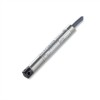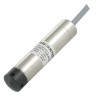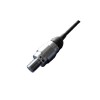Small diameter submersible probes for geological research survey applications in narrow boreholes for applications such as hydro-logical site surveys & groundwater testing.
Products
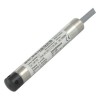 LMP305 Borehole Level Transmitter - Submersible stainless steel pressure transmitter ideal for geotechnical surveying with a 19mm diameter for measuring hydrostatic water level in bore-holes.
LMP305 Borehole Level Transmitter - Submersible stainless steel pressure transmitter ideal for geotechnical surveying with a 19mm diameter for measuring hydrostatic water level in bore-holes. LMK 806 Plastic 21mm diameter Submersible Level Probe - The chemical resistant LMK806 submersible level probe is designed for use in confined spaces with aggressive media.
LMK 806 Plastic 21mm diameter Submersible Level Probe - The chemical resistant LMK806 submersible level probe is designed for use in confined spaces with aggressive media.
Applications
 Small diameter dip well water level transducer - We are searching for a transducer for to monitor water in an upland bog
Small diameter dip well water level transducer - We are searching for a transducer for to monitor water in an upland bog 10,000 mmH2O range 19mm dia borehole water level sensor - 19mm diameter bore hole submersible water sensor designed to measure 0-10000 mmH2O raw water level with a 4-20mA output.
10,000 mmH2O range 19mm dia borehole water level sensor - 19mm diameter bore hole submersible water sensor designed to measure 0-10000 mmH2O raw water level with a 4-20mA output.
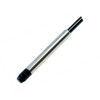 30 metre depth sensor for lowering into 20 mm diameter pipe
30 metre depth sensor for lowering into 20 mm diameter pipe Dam bank submersible pressure transducer for 30m deep pipe
Dam bank submersible pressure transducer for 30m deep pipe Water well level monitoring in 3/4″ dia sounding tube to 300ft
Water well level monitoring in 3/4″ dia sounding tube to 300ft

